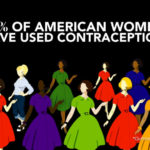By KRUI News Reporter Michael Gerald
“It gets better” – Helping Queer Youth
Life for Trae Krum would most likely be considered normal given the traditional American narrative. The southern California native grew up in a religiously conservative household with her 3 sisters and mother and father, who affectionately referred to her as Tracy. Trae attended church, kept her hair long, wore dresses, showed cleavage, and dated boys. None of this, however, was normal for Trae.
“Living in the closet is almost as painful as what happens after coming out.” Trae said.
Her adolescence, a confusing and traumatic enough experience for straight, cisgender (biologically male or female) youth, was inundated with messages of homosexuality “is a sin” and “a choice”. So for Trae, who now identifies as Gender Queer and a Lesbian, becoming the person she is today involved forging an identity in the face of incessant invalidation of her very existence. Being a lesbian means that Trae is attracted to other women, while being Gender Queer means that Trae does not identify as male or female and sees her gender as being more “fluid”. Even as an adult, friends and family continue to tell Trae to “tone it down” or “keep it to herself”.
“People have told me numerous times that they ‘don’t want to see it’ or would rather I just ‘keep it to myself.’” Trae explained.
Trae’s experience, although unique in its own right, parallels the experiences of millions of gay and transgender youth across the country whose very identity is challenged and questioned. While the rest of us toe the line and play gendertyped sports, date members of the opposite sex, and dress in traditionally gendered fashion, many are severely punished for simply wanting to express who they are. According to Trae, the visceral reaction experienced by LGBT persons is unique to other nontraditional personal expressions. Trae spoke of our cultural binary systems that place matters of gender and sexuality into an “either/or” category in which people are straight or gay, male or female, masculine or feminine, etc. For those who do not fit into this binary system life can not only be personally agonizing, but socially punishing.
A report released by Advocates for Youth on the experiences of LGBT (Lesbian, Gay, Bisexual, and Transgender) youth reveals a traumatic and nearly unbelievable reality. Close to 85% of LGBT students reported being verbally harassed in school, while 20% reported being physically assaulted at school. Additionally, 29% missed a class and 30% missed a day of school in the past month because they felt unsafe at school. The abuse is not confined to schools, as 26% of LGBT youth report being kicked out of their homes upon coming out to their parents. This has lead to LGBT youth making up 20-40% of homeless youth. The tragic reality is that these early traumatic experiences do not merely fall by the wayside as these youth grow and develop. The mindless phrase ‘what doesn’t kill you only makes you stronger’ painfully ignores the residual damage caused by abusive environments and scarce sources of support.
So where does this lead? Do Lesbian women, gay men, and transgender persons graduate the traumatic experiences of their adolescence and enter into a much more welcoming and accepting adulthood surrounded by strong systems of support? People like Trae and syndicated columnist Dan Savage, argue that life does in fact get better in the hopes of reaching LGBT youth before they contemplate or commit suicide. United States surveys demonstrate that LGBT youth and adults are 2-6 times more likely than their straight counterparts to attempt suicide. Additionally, youth who face familial rejection of their sexual or gender orientation are eight times more likely to report a suicide attempt compared to LGBT youth in less rejecting families. In order to curb these disturbing trends organizations such as the It Gets Better Campaign and the Trevor Project specifically target the issue of suicide among LGBT youth. Dan Savage’s It Gets Better Campaign began with Dan and his partner posting a youtube video attempting to uplift troubled LGBT youth by telling them life gets better. They have found that having LGBT adults convey messages of hope and support can be a powerful tool in helping youth persevere in the face of immense rejection and hardship. The Trevor Project is a suicide hotline that offers support to LGBT youth who may be at risk for a suicide attempt. The hope is that LGBT youth will connect with the Trevor Project and receive crisis intervention to curb suicidal ideation or attempts.
Although Trae may not necessarily describe her life as being better now than before, she certainly represents that narrative. Trae is currently a PhD candidate in the Couple and Family Therapy (CFT) program and is part of a soon to be initiated LGBT Clinic that will provide counseling and medical services for LGBT youth. As a therapist, Trae can serve as both a clinical specialist helping LGBT youth experiencing psychiatric conditions such as Depression, Anxiety, etc. But as a Lesbian, Gender Queer person, Trae can serve as a beacon of hope for LGBT youth coming into the clinic. Trae goes on to describe:
“The most important thing to offer in counseling LGBT youth is support; to just offer a place that is safe and welcoming where they can express themselves fully.”
Youth who are Transgender and may be interested in transitioning their gender through hormone therapy will have access to medical professionals who specialize in LGBT care and counseling that will be best suited to their needs. Trae went on to emphasize that not only can our society be described as heterosexist (meaning heterosexual traits and relationships are emphasized while others are rejected outright or described as deviant), but even our counseling practices can devolve into harmful stereotypes as well. Many are aware of therapies such as reparative therapy in which counselors tell LGBT persons that they can choose to be straight, even though the American Counseling Association, American Psychological Association, American Association of Marriage and Family Therapists, and many others have rejected the therapy, citing it as harmful to LGBT persons. But even mainstream therapies that do not discriminate based on sexual or gender orientation can sometimes place too much of an emphasis on sexuality, while forgetting that it is instead the harmful environments in which LGBT persons reside and not their sexuality or gender that leads to psychological distress. The point must be reemphasized that the relationship between psychological dysfunction and distress is not a causal one; rather, the psychological distress experienced by LGTBQ youth is a microcosm of lived experience in a heterosexist and homophobic world.
“It’s important in a therapeutic setting to affirm our LGBT youth. This can be as simple as having a rainbow flag in your office, or as involved as attending a gay rights rally. All of these indicate support.” Trae said.
As Trae continues to support LGBT youth in Iowa City and the surrounding areas, the issue of acceptance for LGBT people remains a significant civil rights issue in our time. For Trae, tolerance can no longer be the satisfactory minimum by which people absolve themselves of responsibility in a homophobic world. As Trae notes, “Tolerance lets you hate me, and devalue me without saying it to my face.” Whereas acceptance validates the lives of persons who are LGBT and places them on an equal plane with their straight and cisgender counterparts. In the recent elections LGBT persons saw some progress as same sex marriage ballots were supported and a gay marriage ban was voted down in 3 states. Moving forward, however, there continues to be a need to develop and implement supportive services for LGBT persons of all ages that validate their lives and accept them holistically.




